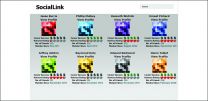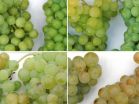(Press-News.org) AUDIO:
Atika Khurana, assistant professor in the University of Oregon's Department of Counseling Psychology and Human Services, provides a short summary and the implications of a study that looked at the...
Click here for more information.
EUGENE, Ore. -- Oct. 2, 2014 -- Adolescents with strong working memory are better equipped to escape early drug experimentation without progressing into substance abuse issues, says a University of Oregon researcher.
Most important in the picture is executive attention, a component of working memory that involves a person's ability to focus on a task and ignore distractions while processing relevant goal-oriented information, says Atika Khurana, a professor in the Department of Counseling Psychology and Human Services.
Khurana, also a member of the UO's Prevention Science Institute, is lead author of a study online ahead of print in the quarterly journal Development and Psychopathology. The findings, drawn from a long-term study of 382 adolescents in a mostly at-risk urban population, provide a rare, early view of adolescents' entry into the use of alcohol, tobacco and marijuana.
Khurana collaborated with researchers at the University of Pennsylvania and Children's Hospital of Philadelphia. They focused on 11- to 13-year-old children as they began to explore risky and sensation-seeking experiences that often mark the road to independence and adulthood. Previous studies generally have relied on adult recall of when individuals began experimenting, with early drug use thought to be a marker of later substance abuse problems.
"Not all forms of early drug use are problematic," Khurana said. "There could be some individuals who start early, experiment and then stop. And there are some who could start early and go on into a progressive trajectory of continued drug use. We wanted to know what separates the two?"
During four assessments, participants provided self-reports of drug use in the previous 30 days. Four working memory tests also were conducted: Corsi block tapping, in which subjects viewed identical blocks that lit up randomly on a screen and tapped each box in reverse order of the lighting sequence; a digit-span test where numbers shown are to be repeated in reverse order; a letter two-back test, in which subjects identify specific letters in time-sensitive sequences; and a spatial working-memory task where hidden tokens must be found quickly within sets of four to eight randomly positioned boxes on a computer screen.
The pattern that emerged was that early drug experimentation more likely to lead into progressive drug use among young people whose impulsive tendencies aren't kept in check by strong working memory ability. Later assessments of the participants, who have now reached late adolescence, are being analyzed, but it appears that the compulsive progression, not just the experimentation, of drug use is likely to lead to disorder, Khurana said.
"Prefrontal regions of the brain can apply the brakes or exert top-down control over impulsive, or reward seeking urges," Khurana said. "By its nature, greater executive attention enables one to be less impulsive in one's decisions and actions because you are focused and able to control impulses generated by events around you. What we found is that if teens are performing poorly on working memory tasks that tap into executive attention, they are more likely to engage in impulsive drug-use behaviors."
The findings suggest new approaches for early intervention since weaknesses in executive functioning often underlie self-control issues in children as young as 3 years old, she said. A family environment strong in structured routines and cognitive-stimulation could strengthen working memory skills, she said.
For older children, interventions could be built around activities that encourage social competence and problem solving skills in combination with cognition-building efforts to increase self-control and working memory. The latter allows people to temporarily store, organize and manipulate mental information and is vital for evaluating consequences of decisions.
"We need to compensate for the weakness that exists, before drug experimentation starts to help prevent the negative spiral of drug abuse," Khurana said.
INFORMATION:
The research is a continuation of work Khurana began while she was a postdoctoral fellow at the Annenberg Public Policy Center of the University of Pennsylvania. She joined the UO's College of Education in July 2012.
The National Institute on Drug Abuse, a division of the National Institutes of Health, supported the research (grants RO1DA018913 and RO1DA033996).
Co-authors of the paper are Daniel Romer of the University of Pennsylvania and Laura M. Betancourt, Nancy L. Brodsky, Joan M. Giannetta and Hallam Hurt of the Children's Hospital of Philadelphia.
Source: Atika Khurana, assistant professor, Department of Counseling Psychology and Human Services, 541-346-5540, atika@uoregon.edu
Note: The University of Oregon is equipped with an on-campus television studio with a point-of-origin Vyvx connection, which provides broadcast-quality video to networks worldwide via fiber optic network. In addition, there is video access to satellite uplink, and audio access to an ISDN codec for broadcast-quality radio interviews.
Links:
Audio: http://uonews.uoregon.edu/sites/uonews1.wc-sites.uoregon.edu/files/uploads/Study%20Overview%20and%20Implications.mp3
Khurana faculty page: https://education.uoregon.edu/users/atika-khurana
Department of Counseling Psychology and Human Services: https://education.uoregon.edu/department/counseling-psychology-and-human-services
UO Prevention Science Institute: http://psi.uoregon.edu/
UO College of Education: https://education.uoregon.edu/
Paper: http://journals.cambridge.org/action/displayAbstract?fromPage=online&aid=9334505&fulltextType=RA&fileId=S0954579414000765
News release: http://uonews.uoregon.edu/archive/news-release/2014/9/strong-working-memory-put-brakes-problematic-drug-use
PROVIDENCE, R.I. [Brown University] — Among the negative feelings that can plague a teen's psyche is a perception of "invalidation," or a lack of acceptance. A new study by Brown University and Butler Hospital researchers suggests that independent of other known risk factors, measuring teens' sense of invalidation by family members or peers can help predict whether they will try to harm themselves or even attempt suicide.
In some cases, as with peers, that sense of invalidation could come from being bullied, but it could also be more subtle. In the case of family, for ...
NEW YORK, NY - A century's worth of cultural and historical forces have contributed to the rise in the incidence of melanoma, including changes in fashion and clothing design, according to an intriguing, retrospective research study conducted by investigators in the Ronald O. Perelman Department of Dermatology at NYU Langone Medical Center.
Their findings are the subject of a report, "More Skin, More Sun, More Tan, More Melanoma," in the October 6, 2014 issue of the American Journal of Public Health.
The authors surmised that early diagnosis and improved reporting ...
Champaign Ill. Herbivores (species that eat plants; e.g. caterpillars) consume more non-native (introduced from other places) oak leaf material in areas with diverse native plant communities than in less diverse communities. Why diverse plant communities tend to resist invasion by non-native plants, remains uncertain. Researchers from the Illinois Natural History Survey and the Morton Arboretum have been examining the potential role of herbivores on the invasion of non-native plant species in diverse plant communities.
The researchers examined herbivore damage on leaves ...
WASHINGTON -- A new report from the National Research Council recommends best practices that law enforcement agencies and courts should follow to improve the likelihood that eyewitness identifications used in criminal cases will be accurate. Science has provided an increasingly clear picture of the inherent limits in human visual perception and memory that can lead to errors, as well as the ways unintentional cues during law enforcement processes can compromise eyewitness identifications, the report says.
"Human visual perception and memory are changeable, the ability ...
In 1897, Emile Durkheim, the father of sociology, speculated that religion could protect against against suicidal impulses. In the century that followed, numerous studies attempted to either prop up or debunk this theory, focusing primarily on Christianity, which condemns suicide as the worst of sins.
For the first time, a study published in European Psychiatry approaches Durkheim's premise through the lens of Judaism. According to the research, conducted by Dr. Gal Shoval and Dr. Ben Amit of Tel Aviv University's Sackler School of Medicine and Clalit Health Service's ...
(MEMPHIS, Tenn. – October 2, 2014) Diet-induced changes in the gut's bacterial ecosystem can alter susceptibility to an autoinflammatory bone disease by modifying the immune response, St. Jude Children's Research Hospital scientists reported. The findings appeared September 28 as an advanced online publication of the scientific journal Nature.
The research provides insight into how the thousands of bacteria and other microorganisms that live in the intestines affect health. The microbes make up the intestinal microbiome, a diverse evolving ecosystem that aids digestion ...
COLUMBUS, Ohio – When people are in a bad mood, they are more likely to actively search social networking sites like Facebook to find friends who are doing even worse than they are, a new study suggests.
Researchers found that, in general, people use social media to connect with people who are posting positive and success-oriented updates.
"But when people are in a negative mood, they start to show more interest in the less attractive, less successful people on their social media sites," said Silvia Knobloch-Westerwick, co-author of the study and professor of communication ...
Building on the poverty relief success achieved through self-sustaining high-tech "smart villages," Malaysian innovators have created blueprints for an urban counterpart that combines affordable homes, food security and sustainable jobs, aiming to solve the growing global problem of squalid city slums.
Like the 50-acre smart village sites, the 5-acre urban version provides affordable accommodation with educational and community facilities and incorporates innovative employment opportunities and food security through aquaculture and state-of-the-art water-efficient greenhouse-based ...
The majority of wines are produced from around 20 different types of grape, all of which have their own typical aroma. This is due to the terpenes, a diverse category of chemical substances including cholesterol and estrogen. Scientists from Technische Universität München (TUM), the Hochschule Geisenheim and the Universität Bonn have now identified two enzymes that determine the terpene content – and thus the aroma intensity – of grapes. The findings could play an important role in the future development of grape varieties.
From Chardonnay to Sauvignon, Dornfelder to ...
October 2, 2014 – A parent coaching intervention brings meaningful benefits for preschool-aged children with autism-spectrum disorders (ASD), according to a clinical trial in the October Journal of Developmental & Behavioral Pediatrics, the official journal of the Society for Developmental and Behavioral Pediatrics. The journal is published by Lippincott Williams & Wilkins, a part of Wolters Kluwer Health.
The "Play and Language for Autistic Youngsters" (PLAY) Project approach yields improved parent-child interactions, along with other benefits for children with ASD ...


